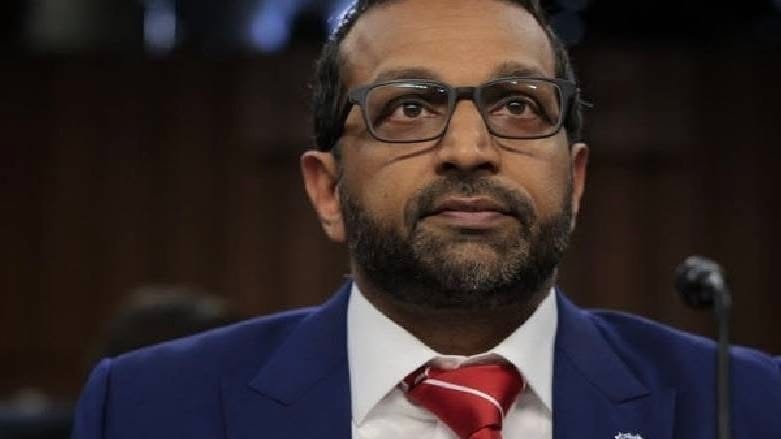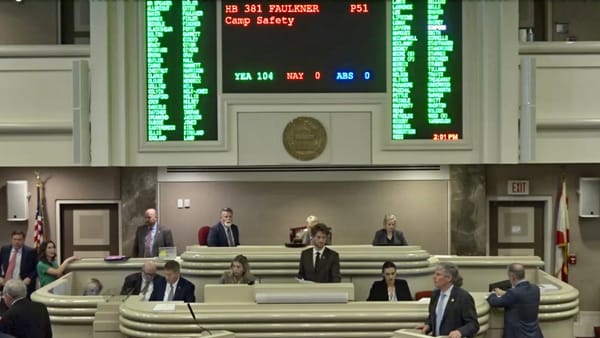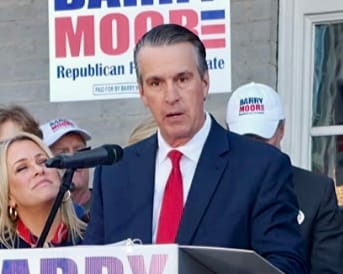Patel Ends FBI’s ADL Ties — Slams “Political Fronts” and Activist Alliances
Pronouncement came amid backlash over ADL’s labeling Turning Point USA as “extremist,” follows ADL’s labeling “America First” as “Hate Speech”

FBI Director Kash Patel has severed his agency’s longstanding relationship with the Anti-Defamation League (ADL). His pronouncement came amid growing backlash over the ADL’s decision to label Turning Point USA (TPUSA) as “extremist.”
“James Comey wrote ‘love letters’ to the ADL and embedded FBI agents with them — a group that ran disgraceful ops spying on Americans,” Patel declared on X. “That era is OVER. This FBI won’t partner with political fronts masquerading as watchdogs.”
The conflict erupted after the ADL publicly included TPUSA—the conservative campus group co-founded by Charlie Kirk—in its Glossary of Extremism & Hate. That classification drew fierce criticism from MAGA-aligned commentators, and the ADL later removed the entire glossary from its site, saying it was “outdated” and that its entries were sometimes “misrepresented and misused.”
An archived version of the now-deleted ADL web page on TPUSA, under the label of “Extremism, Hate or Terror” may be found HERE.
But, the damage was done: the group’s credibility among conservative circles was deeply eroded. Critics see the move to delete the Glossary as evidence of the ADL’s partisan scope.
As ALPolitics.com has reported, the ADL recently labeled the phrase “America First” as “Hate Speech,” declaring that the phrase “is used by extremists in antisemitic, racist and xenophobic ways.” Unsurprisingly, this generated considerable backlash, especially among President Trump’s MAGA base.
Patel’s decision did not arise spontaneously. For years, conservative leaders have criticized both the ADL and the Southern Poverty Law Center (SPLC) for deploying their “hate group” labels as weapons in political warfare.
Some have accused the ADL of monitoring and targeting traditional conservative groups or even churches under the guise of counting “extremism.” For instance, City Journal’s “Defame and Punish”—using data from the Heritage Foundation’s Oversight Project—warns that the ADL and SPLC have pushed law enforcement to surveil critics of gender theory, race curricula, or political dissent.
The SPLC has also faced scrutiny, primarily over its “Hate Map” that places some right-leaning or religious organizations in “hate group” categories. Critics contend it exaggerates or mischaracterizes organizations to preserve relevance and funding. For example, a nativist leader attacking a Missouri report claimed that “false connections, pseudo research and political attacks … could have been penned by the SPLC and ADL.”
Notably, The FBI was one such group that relied on the SPLC for these designations of “hate speech” and “hate groups,” until it was forced to stop.
Within the ADL itself, dissenting voices suggest the leadership has drifted into ideological enforcement. The Guardian reported anonymous staffers resigning over what they deemed a growing bias in linking criticism of Israel to antisemitism. As ADL President Jonathan Greenblatt has said, “antizionism is antisemitism“—a stance that many find questionable, if not flatly wrong.
The FBI relied for decades on training, tip-sharing, and joint programs with the ADL—especially for intelligence on hate and extremist movements. Patel’s move signals a rejection of that model.
By refusing to rely on external advocacy organizations as arbiters of extremism, the FBI appears to be reclaiming its independence. But, as the Comey era has shown, that brings with the possibility of internal leadership imposing their own bias on what should be a scrupulously neutral agency.
If the ADL and SPLC were once seen as neutral expert bodies, the last few years have exposed how partisan pressure, fundraising incentives, and ideological alignment can warp that role. In rejecting their influence, Patel is making it clear that law enforcement must cede control of threat definitions back to itself—and away from activist agendas.




